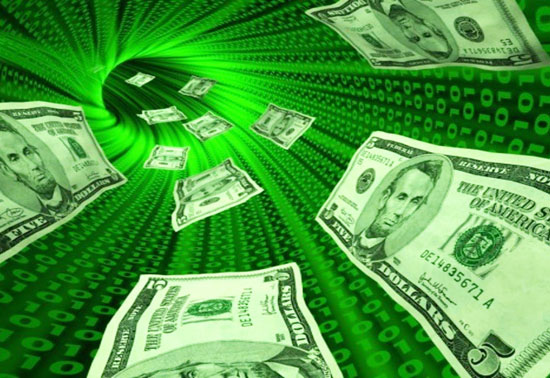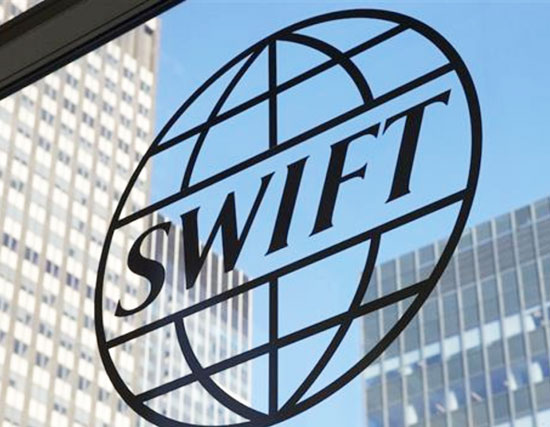The Cashless Society: The Hard Road Towards ‘An Easier Way To Pay’

Forget cash, cards or whipping out your smartphone. Shoppers could soon be paying for goods simply by picking what they want and walking out the door.
It’s simple, really. A chip in each item detects your selection and a 3D scanner above the doorway could check your identity against a database and debit your preferred account.
Rather than being a dystopian vision of the future, online shopping giant Amazon has already made this a reality at its checkout-less Seattle store.
Using the same biometric scanning technology we see at Customs Smartgate kiosks in international airports, customers are able to check in via a smartphone app as they enter the store, which automatically detects when products are taken from or returned to the shelves and keeps track of them in a virtual cart.
It’s little wonder that Reserve Bank deputy governor Geoff Bascand acknowledged in 2015 that New Zealand’s “new” banknotes could be the last ones designed for the central bank.
But how close are we to having micro-chip implants embedded under our skins to make payments? Like the Amazon stores, this has also already arrived.
One Swedish startup gives its workers the chance to have microchips the size of grains of rice inserted under their skin that can open doors, operate printers, or buy smoothies with a wave of the hand.
The pace of change sweeping the banking and payment industry is reaching a “tipping point”, according to Massey University banking expert David Tripe.
Tripe says he has started noticing shop assistants on auto-pilot keying in Eftpos transactions even before checking how consumers intend to pay – and then having to cancel the transaction when someone pulls out a $20 bill.
The so-called “retail apocalypse”, where consumers shift their spending habits ever more online, is forcing bricks and mortar stores to innovate.
ANZ bank digital transformation head Liz Maguire says it is combining its internet banking app with Apple’s Siri and voice biometrics, so customers could securely transfer money to a friend just by saying “pay John $50” to their smartphone.
She says people may want to pay for transport using smart watches or rings, but prefer a different payment device in a posh shop. “I am sure there will be new things that we have never dreamed of.”
Even though cash may no longer be king, Maguire believes the completely cashless society may be a mirage.
The next big evolutionary step has long been touted as being the arrival of alternative “virtual” or crypto currencies such as Bitcoin. But not everyone is convinced the hegemony of traditional currencies is really under threat.
Massey’s banking expert Tripe notes the New Zealand dollar is as much a “virtual currency” as a physical one. Only about 3 per cent of the $150 billion deposited with banks in New Zealand exists in notes and coins, and the rest is just numbers on a computer. Alternative currencies have “come and gone” over the ages, and Tripe says it is too soon to say whether Bitcoin will be also be a flash in the pan.
What seems to be clear is that Bitcoin has failed to take-off as a means of exchange in New Zealand, except perhaps when it comes to paying off ransomware demands, such as the Petya malware attack. (Ransomware is a type of malware that blocks access to a computer or its data and demands money to release it. Petya affected more than 230,000 computers in over 150 countries, with the NHS, Spanish phone company Telefónica and German state railways among those hardest hit.)
Internet service provider Slingshot made headlines in 2014 when it became the largest domestic company to start accepting Bitcoin as payment for bills.
But it quietly shelved the payment option during an upgrade of its IT systems. “There wasn’t a huge demand”, consumer manager Taryn Hamilton explains. “It was a quirky thing to offer, but normal cash won out after a while.”
In addition to being associated with ransomware payments and tax evasion – and hence the focus of a growing number of regulators around the world – Bitcoin has another ugly secret. Bitcoins are brought into circulation by “Bitcoin mining”, which is achieved by setting up computer servers to solve mathematical puzzles than turn up Bitcoins at random. The economics of Bitcoin mining is largely determined by the cost of electricity to run those servers, so creating a Bitcoin, now worth $3,545, should cost close to that in fossil or other fuels.
Just as currencies were historcially made out of precious metals such as gold and silver, Tripe says it wouldn’t be much of a stretch to say each Bitcoin is made out of 30 barrels of oil. One study suggests Bitcoin mining could consume as much electricity as Denmark by 2020 and American Nobel laureate for economics Paul Krugman is among those who have described it as a terrible step backwards for currencies.
The environmental debate over Bitcoin mining also appears to have the Green Party thinking carefully, even though it is a natural ally for alternative and barter currencies. “We don’t have policies specifically on Bitcoin. We do have policies supporting local currencies”, energy and information, communication technology spokesman Gareth Hughes says. “I think people using Bitcoin would be surprised to consider the environmental footprint.”
So the upshot is, we may be stuck with the money we’ve got, but that doesn’t mean it can’t work harder for us. Tripe expects banking costs to decline over time. Those costs include not just the likes of bank fees and charges, but the spreads between the interest rate at which people can borrow and lend money, and at which they can change money between different currencies. “As payment systems become increasingly technological, costs are declining” Tripe says. The growth in the number of non-bank companies that are springing up offering people cheaper ways to move money around the world suggests that the foreign exchange market may be set for some disruption, he says.
Banks typically charge about a two percent cut in fees and exchange rate spreads when transferring funds across borders. That is even though they deal in two-ways flows of different currencies all the time, so the majority of transactions will cancel out and never require the bank to buy or sell any foreign currencies on a wholesale market. Banks will instead maintain a working balance in different currencies, Tripe explains, and will only buy or sell currencies if they consume that and need to cover their position.
Maguire says ANZ (Australia and New Zealand Banking Group) is testing the distributed ledger technology of blockchain – not to be confused with Bitcoin itself – to process international payments faster and more securely.
“This proof of concept has been adopted by international payments service Swift and 45 leading banks from around the world have signed up to be part of the pilot to test this. It is always important that there is a reasonable price for the services we offer”, she adds.

Aside from being untraceable and hence useful for buying things on the black economy, or from people you’d rather not deal with again, cash may also prove to be valuable when “the big one” strikes – should Eftpos and ATM networks go down. The Civil Defence and Emergency Management Ministry doesn’t specify an amount to have on hand but says people should be able to make do for at least three days.
“We understand supermarkets will still be able to process electronic payments, in most cases, as they have a process that allows this to occur offline. We also understand that local bank branches will act to make cash available via non ATM methods” a spokeswoman says.
Bar a natural disaster sending us back to the iron age – and whizzy new payment technologies aside – just what is “reasonable” when clipping the ticket is perhaps the million-dollar question when it comes to the future of money. Over at Amazon, they’re already looking at bringing the cashier-less technology to the 1200 whole food grocery stores across the United States that was recently purchased for $18bn. So the era of swiping and pay-waving may not last long.
Australian Government To Track $100 Notes With Nano-chips As Cashless Society Looms
The Australian government plans to crack down on the black economy by implanting $100 and $50 notes with hi-tech nano-chips so they can be surveilled. No, this isn’t a futuristic Hollywood movie, this is Australia in 2017. With around 300 million $100 notes in circulation carrying out such a task seems almost impossible to derive any value, let alone a waste of time and tax payer money. Especially at a time when Australia’s household debt-to-income is at an all time high.
Nevertheless, Michael Andrew, the man appointed by the Federal government to lead the Black Economy Taskforce at the end of 2016, believes tracking the currency denomination is the best solution in stopping unwanted transactions from taking place and people avoiding paying tax.
According to The Treasury the black economy “refers to people who operate entirely outside the tax and regulatory system or who are known to the authorities but do not correctly report their tax obligations.” That sounds good and well until we read on to find out who these people targeted by the agency actually are and how they seem to think $100 note is to blame.
Mr. Andrew claims that the $100 note should be tracked with nanotechnology due to:
– Australian pensioners hoarding money under their bed to escape asset tests;
– Chinese citizens taking Australian $100 notes back to China because it is apparently more trusted than the internationally superior Yuan.
The Australian government created Black Economy Taskforce and wants people to believe that grandmas are hoarding hundreds of thousands of dollars under their mattress in stacks of $100 notes. Perhaps these pensioners, if they even are hoarding money (which is not illegal in itself), are doing so because the federal government is hiring people like Mr. Andrew with their tax money to work out ways the public can be further surveilled and tracked.
As for Chinese citizens, there is a $10,000 limit on taking cash out of the country, so many doubt this is any cause for concern.
But is this all part of a bigger agenda?
Calls to Remove Major Currency From Circulation
The Australian government has previously floated the idea to remove the $100 note from circulation, citing once again the need to crack down on the black economy. This came shortly after global Investment Bank UBS recommended that Australia remove its largest value note from circulation.
This is not a local phenomena in terms of requests made for currency denominations to be removed from circulation. We’ve seen moves in Europe where the 500 Euro bill was labelled the “Bin Laden bank note” that criminals love and removed from circulation.
In the United States, one of the chief architects of the 2008 global financial crisis, Larry Summers, has called for the removal of the $100 and $50 bill, once again demonizing their use in illegal activities.
India removed their 500 and 1,000 rupee notes from circulation overnight which saw queues form around the country at ATM machines as people desperately tried to convert out of the newly defunct notes. Keep in mind that the Indian government claimed the decision was an effort to close down the economy of untaxed cash transactions, which allows corruption, the funding of terrorist groups, and keeps counterfeit notes in circulation.
For the record, 500 rupee in Australian dollars is worth $10.20 and 1,000 rupee $20.40. Many doubt any terrorism is being financed with that sort of money but rather sounds like the government is seeking more control over taxing its citizens. Whilst some people see the move to a global cashless society as being inevitable, others claim this is part of a global “war on cash” and freedom, as governments around the world seek to tighten the noose on citizens.
This has in turn seen many people move into the growing cryptocurrency market where there is no centralized control and people can experience freedom with their hard earned money rather than being taxed into oblivion. Hence the recent booms we’ve seen in cryptocurrencies such as Bitcoin and Ethereum. People are seeking ways to escape the clutches of ever so hungry governments.
War on Cash = War on Freedom

Furthermore, the Australian Tax Office came out saying it was going to target work expense claims. Big corporations making billions of dollars and not paying tax? Don’t worry, you’re safe, the ATO isn’t interested in cracking down on you. Trying to claim for those $160 business shoes you bought this year? Then look out, you’re being targeted!
People are in their right to claim what they legally can in order to reduce their taxable income. However, with traceable money and increasingly dictatorial changes in law people may soon find they are unable to escape the grip of excessive government taxation. The irony is that people’s tax revenue is being used to further clamp down on them by creating and funding agencies such as the Black Economy Taskforce.
Governments No Longer Work For the People
There are clear signs that the public is fed up with government wasting their tax money on things people don’t need. This includes the over $15 billion of Australian tax payer money wasted in fighting unnecessary wars overseas. It also includes money being squandered to friends of politicians so they can profit, either through the military industrial complex or corporations who avoid paying tax.
Note how no measures are being introduced to clamp down on this waste in the billions of dollars, but a few hundred dollars here or there by you, and the government wants to know everything about it. This is one of the reasons that increasingly the trend around the world is that people are growing discontent with the actions of their governments and political systems. People no longer feel they are being represented or that the system is working for them. This was highlighted with the rise of Donald Trump in the United States, largely seen as an anti-establishment figure, and Britain’s vote to leave the European Union that saw the Brexit party win.
Final Thoughts
Perhaps it’s time that we as humans evolve past the notion of needing a small elite few living in another reality telling us how we should live our lives. After all, we’ve moved on since the times of kings and queens.
Well, at least some of us have. For now it seems governments will look for increasing ways to control and surveil their citizens. Using well sounding excuses such as stopping terrorism or fighting the black economy. In reality, it’s more likely a case that government is looking at new ways to bolster its coffers and if people are using physical cash then there is less money to be had for the greed that resides in Canberra.
The war on cash is well and truly underway.
yogaesoteric
November 1, 2017
